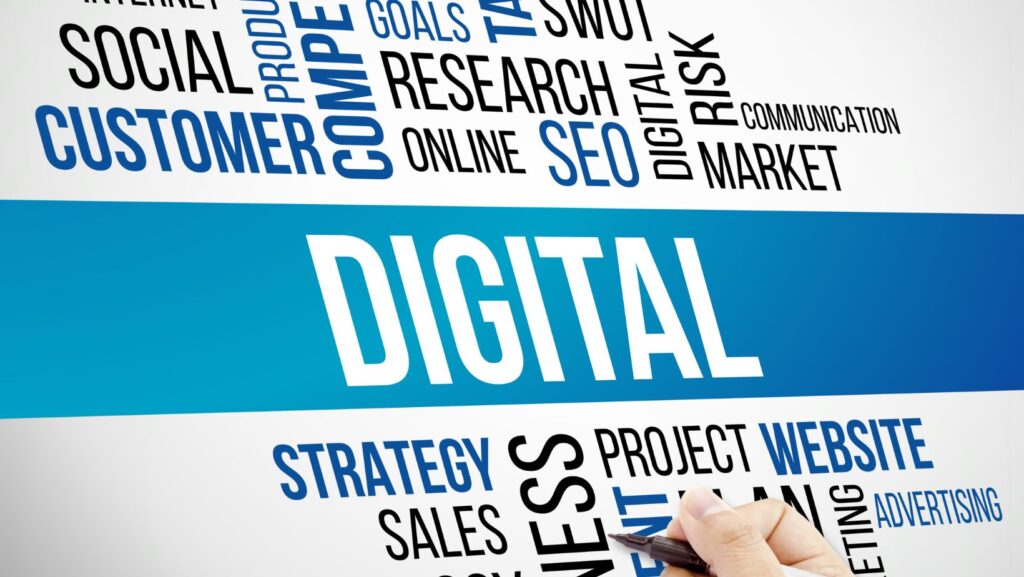A Brief Introduction: What is Digital Marketing’s Role Within Business Globalization?
The integration of technology in marketing brings both a challenge and opportunity to businesses today. Traditional methods of marketing are not as effective anymore, which is why businesses should consider using digital marketing as a tool to increase competition and grow the business.
Digital marketing is an umbrella term that covers social media marketing, content marketing, email marketing, and even SEO. There is also enhanced engagement and improved target audience visibility, which leads to greater brand reputation. Subsequently, businesses are provided with effective strategies based on previously analyzed data which enhances profits, and ROI further down the line.
A prime example of digital marketing in action is the use of promotional offers like the http://glorycasinobonus.com/mobile-apk/ . This strategy uses targeted advertising to attract players to their platform by incentivizing them with appealing offers.
This article discusses the significance of digital marketing, the major strategies, and the ways an organization can develop a good strategy in order to navigate towards success in the digital world.
The Importance of Digital Marketing in Business Growth
Why Does Digital Marketing Matters?
The internet has changed the conventional business model, and offers a fundamental gateway for organizations to reach audiences as far as the continents. Through the use of digital marketing, advertisement offers can effortlessly be promoted and efficiently target specific groups.
Key Advantages of Digital Marketing:
- Boosted Online Presence: Enhances visibility and promotes brand recognition.
- Higher Interaction Level: Promotes engagement via social media and tailored email campaigns.
- Improved ROI: Provides analytics and performance measurement for results.
- Specific Demographic Marketing: Targets specific populations via search engine and social media marketing.
- Edge Over Competitors: Enables businesses in an industry to outdo competitors.
Types of Digital Marketing Strategies
There are numerous effective marketing strategies that businesses can adopt to enhance their marketing and attain business objectives.
1. SEO (Search Engine Optimization): Improving Visibility
As with any digital marketing strategy, businesses should have a website. Search engine optimization (SEO) is arguably one of the most important strategies because it is centered on making sure your website is visible to search engines. SEO also entails making sure your business shows up when someone searches for it online.
Important Strategies for SEO:
- On-Page SEO: Involves optimizing content of a website, its words or phrases, and meta content of a website.
- Off-Page SEO: Involves link building and improving the website’s domain.
- Technical SEO: Entails making a website faster, mobile friendly, and easier to index.
SEO is one of the best ways a business can gain visibility because it increases the organic traffic to the business. The best part is, it’s free to use.
2. Content Marketing: Developing Worthy Digital Assets
One of the most powerful tactics to digitally market the business and engage the audiences to promote the brand is through content marketing. Providing re-markable, useful, and entertaining content enables businesses to position themselves for thought leadership in their industries.
Effective Content Marketing Strategies Include:
- SEO blogging and article writing.
- Creating engaging video content.
- Visually appealing infographics and storytelling.
- Writing whitepapers and case studies.
Combining content marketing with SEO delivers great outcomes as businesses are able to capture customers’ attention through organic search.
3. Social Media Marketing: Listening to the Customers
Social media forms a big part in online marketing as social media marketing allows companies to directly interact with their targeted audience on Facebook, Instagram, Twitter, LinkedIn, TikTok, and other platforms.
How Social Media Helps Businesses:
- Increases the coverage of the brand and increases customer loyalty.
- Increases traffic to the site due to sharing on social media.
- Enables companies to engage with customers and receive feedback.
- Increases sales through targeted ads on social media.

- SMM enables the marketing of the company to build a community with a strong brand loyalty.
4. Email Marketing: A Direct and Personalized Strategy
Email marketing is and will always be one of the most effective digital marketing techniques, providing companies the chance to connect with customers directly for business and ask for leads.
Most Practices for Email Marketing:
Personalized campaigns are made possible through segmented email lists.
- Leads are nurtured through automated email sequences.
- Open rates are improved through engaging subject lines.
- Conversions are earned through call-to-action (CTA) buttons.
- Email marketing, when implemented effectively, can improve customer retention and enhance ROI to a great extent.
5. Pay-Per-Click (PPC) Advertising: Instantly Gaining Traffic
PPC and SEM marketing offers an instant visibility oportunity at the top of search results for businesses. Unlike SEO, PPC provides immediate traffic and visibility, without needing any time consumption.
Some popular PPC sites include:
Google Ads
Facebook Ads
LinkedIn Ads
- Instagram Ads
Businesses are able to maximize ad spend through data-driven strategies and performance tracking while overseeing better ROI.
Leveraging Data and Analytics in Digital Marketing
The Power of Digital Analytics
Tracking and measuring the performance of campaigns through analytics is one of the advantages of digital marketing strategies. As opposed to traditional ones, which are challenging to quantify, digital marketing employs a broad array of insights that illustrate the details of a campaign’s performance as the effort is put on traditional campaigns.
Important Digital Marketing Metrics:
Website Traffic: Captures the count of visitors.

Conversion Rate: Monitors how many visitors take the desired actions.
Engagement Rate: Looks at activities by users on social media platforms.
- Return on Investment (ROI): Checks the cost-benefits of ad campaigns.
By looking more deeply into these metrics, companies will be able to fine-tune their marketing plans and boost efficiency in every single marketing activity.
Building a Strong Digital Marketing Strategy for Success
Steps to Creating an Effective Digital Marketing Strategy
In this highly competitive environment, organizations should establish a strong digital marketing strategy that meets their unique requirements.
1. Define Your Goals
- Do you want to expand your brand’s recognition?
- Would you like to increase the traffic to your site?
- What are you trying to achieve: leads and conversions?
2. Identify Your Target Audience
Performing adequate market research will provide information regarding the characteristics of your target audience.
Segmented and targeted campaigns can be developed based on the acquired customer information.
3. Choose the Right Digital Marketing Channels
- Optimize for SEO to achieve greater results over a longer period of time.
- Engage audiences with social media marketing.
- For immediate results, invest money in PPC advertising.
4. Optimize and Test Your Campaigns
Improve landing pages and ads using A/B testing strategies.
Track statistics to assess which strategic approaches have been the most efficient in meeting the desired goals.
5. Keep Abreast of New Developments in Digital Marketing
Learn about innovative AI marketing approaches, influencer marketing, and voice search marketing.
Conclusion: The Future of Digital Marketing
The continuous shift towards the digital space emphasizes how relevant digital marketing will always be. With the right digital marketing efforts, businesses can maximize their growth opportunities, enhance brand presence, and improve competitiveness.
The use of digital and analytical tools will always guarantee success whether through email marketing, SEO, social media, PPC, or content marketing. Data-centric approaches to digital marketing that rely on personalization and active engagement will shape the future. Businesses that embrace the changes will succeed, while those that do not pay attention to digital marketing will likely fail.
To all who want to make strides in digital marketing, now is the perfect time to establish a well-planned strategic investment.


